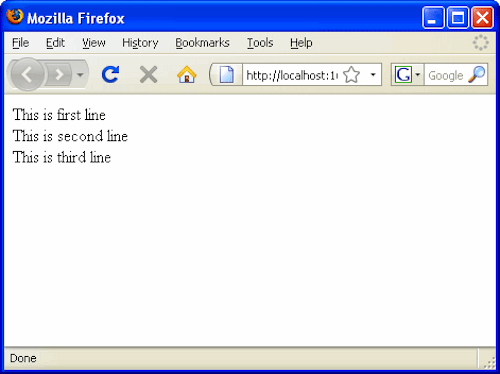
Have you ever tried to teach somebody how commas work? It’s a nightmare. You learn fast enough: You can’t go preaching that simple thing your own teachers told you in third grade. ’Cuz that thing is a lie. Commas are not pauses. If they were pauses you could put them anywhere. Dot dot dot can be a pause; commas are something else. Commas “signal various grammatical relationships.”
That’s the problem. All the other pieces of punctuation only mean one or two things. Question mark means the foregoing was a question. Period means the end of a sentence. Whereas, commas mean sixteen or seventeen different things . . . .
Perhaps you can see where I’m going with this. Line breaks. It’s the same problem. They mean too many things, and so people get confused about how to use them.
Line breaks used to be straightforward enough. Like a thousand years ago. They corresponded to the rhythmic inflectional boost at the end of phrases in songs. For example, here is a very ancient hymn, preserved in an eleventh-century manuscript:
Work so hard I can’t unwind
Get some money saved
Abuse my love a thousand times
No matter how hard I try
Heartbreaker, your time has come
Can’t take your evil ways
Go away, heartbreaker
The line breaks there are not “boring.” They are sensible and functional and just fine. To break the lines some other way would not be more exciting. Whoever wishes to change them is a pervert.
Now, the more committed a poem is to an audible/visceral beat, the more sense it makes to break the lines in such a way as to punctuate that beat. Which is to say, everything/everything/everything would be perfectly clear if all poetry were committed to that kind of rhythm, just like commas would be perfectly clear if the only thing that ever came out of our mouths were lists.
Yet, here, we encounter a key problem in the critical language—one that is not always understood. The problem of the word “rhythm.” There is a fatal ambiguity.
On the one hand, there is real rhythm, such as we find in every song. Unfortunately, that kind of rhythm is tied to a “predictable schedule,” and so is apt to be accused of being boring/monotonous/sing-song, and so on. This criticism is rediscovered with a hideous sense of enlightenment by each new generation of fools here in the US and probably in the whole world. I, too, was such a fool once. Everyone in my milieu was.
Meanwhile, the other sense of “rhythm”—wherein all sentences, prose and verse, have a “rhythm of their own”—serves as a wonderful resource for poets who lack either the ability or the inclination to write rhythmically in the first place.
So what do we get instead. Mainly: line breaks whose warrant is that they install some micro-surprise of polysemy.
… if I stepped out of my body I would break
Into blossom
—and the like. Such effects can be good, Heaven knows. But—and this is key—in real life, these effects almost always belong to a rather large category, one that we really ought to spend some time contemplating—namely, Invisible Beauties. I picked up that phrase from Samuel Johnson and I have been haunted by it ever since.
I used to think people were just excessively devoted to making their poems look like neatly trimmed gardens: the lengths of the lines and the stanzas all regularized with no (or very little) connection to rhythm. But this was a mistake, founded on the ambiguity I mentioned before. The poems whose line breaks and stanzafications were vexing me were not rhythmic at all—or rather, they “had a rhythm of their own”—and so the only actual warrant for line breaks was bound to be a bunch of supersubtle bids at “complexity.” The fact that 98% of such line breaks are quite, quite feckless (unless you count the appeal to the eye) seems to me a matter of very little concern to almost everyone.
And now I am about to say something prophetic. If you want to know the abuse for which good poets are going to be laughing at us, one hundred years from now, you’re looking at it: All these feckless line breaks, all these fake tercets. One hundred years from now, poets are going to say: “Why didn’t they just set all that stuff up as prose?” They are going to say: “Those poor twenty-first century poets! Look how pitifully they just accepted these dreary conventions!” And: “Why, why, and why/why/why didn’t anyone call them out on all this bluffing?”
* * *
PS. Please don’t waste any time wondering if I am as big a sinner as the people I’m criticizing. I am.
Poet Anthony Madrid is the author of the chapbook The 580 Strophes (2009) and the full-length collection...
Read Full Biography

